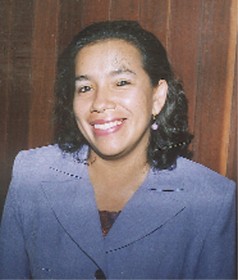Saying that they are entering new and uncharted territory regarding their sugar trade with the European Union (EU), African, Caribbean and Pacific (ACP) countries want the EU to guarantee a smooth transition period, managed in a way that will avoid market disturbance and pressure on prices.

From October this year ACP countries will have to adjust to new conditions and a liberalized EU market with access open to other sugar producing states. Preferential market access provisions for sugar in full Economic Partnership Agreements (EPAs) and Interim EPAs will replace the existing Sugar Protocol.
The call by ACP countries came at the conclusion of the 11th ACP Special Ministerial Conference on Sugar, which was held in Guyana last month, and was later echoed in Brussels when Guyana’s Foreign Minister, Carolyn Rodrigues-Birkett presented a report to the ACP Council there.
The Guyanese foreign minister, who read the report in the absence of the ACP Ministerial Spokesman on Sugar, informed that the ministers have identified the need for coordination with the EU in establishing an alert system and to establish appropriate arrangements “to facilitate the regular exchange of information with the European Commission (EC) on exports and the EU sugar balance sheet”.
The thrust of the brief report by the minister was aimed at emphasizing issues confronting ACP countries, and also at ensuring there are no negative developmental issues as the region implements the EPAs.
Rodrigues-Birkett said that ACP countries are interested in engaging the EU in early discussions on arrangements for a continuation of preferential sugar access after 2015, adding they called for major investments in all sugar industries to be amortized over much longer periods than the six years remaining to the end of the current regime in 2015.
She pointed to the global economic and financial crisis saying that the ministers were concerned that it had aggravated some basic administrative difficulties in accessing investment funds.
“With the added problem of higher input costs, there was a high risk of ACP countries not being able to successfully implement their respective Multi Annual Adaptation Strategies (MAAS) designed to assist the ACP suppliers to reduce production costs and improve productivity to adjust to the 36% price cut,” she reported.
According to her, ministers re-emphasised that the Sugar Protocol Accompanying Measures had been established primarily to assist ACP member states to become as competitive as possible to face the various challenges of the EU market in the post-reform period. In addition, she noted that funds would be directed towards diversification and meeting certain social consequences of EU sugar regime reform.
Still on this issue, Rodrigues-Birkett said that ministers were mindful that the resources under the accompanying measures were less than the loss of export earnings resulting from the cut in the price of sugar, and mandated the Sugar Consultative Group within the ACP to ensure timely disbursement of the second tranche and to explore all possibilities of securing additional resources. She said too that specifically, a submission should be made to the EC for the extension of the Accompanying Measures Support Programme in the context of the post 2013 EC Financial Perspectives.
“Ministers recorded that in several instances funding appeared to have been delayed because of the introduction of undue administrative burdens and conditionalities; and in some cases by the absence of a resident EU delegation…” she added.
Further, she stated that ministers accordingly agreed on the need to secure funding from the EU which would facilitate the restructuring of their sugar industries not currently entitled to benefit from the specific accompanying measures reserved for the Sugar Protocol countries and to engage the EU, EC and European Parliament in discussions with the aim of reaching agreement on the provision of new funds for sugar industry modernisation.
The issue of climate change was also addressed at the Georgetown meeting. Rodrigues-Birkett said ministers also took note of the forthcoming Copenhagen Summit and urged ACP sugar producing states to use this opportunity, together with the commission and likeminded countries, “to trigger better awareness of the role and place of sugar cane in agriculture and of its highly rated carbon sequestering properties”.
She said too that the ministers also pointed to the value of electricity produced in cogeneration plants as well as the significant potential of bio ethanol derived from molasses as opposed to other sources such as corn or wheat.





